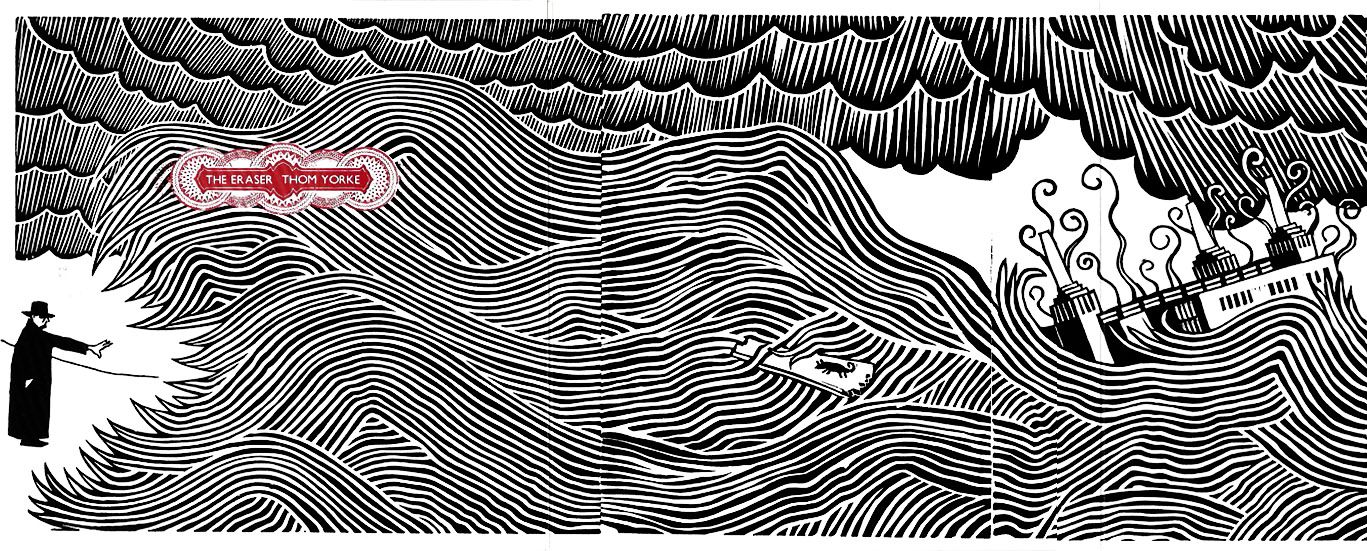This morning, I did something I hadn’t done in a long time: I put on a CD and hung out in my office. It’s The Eraser album by Thom Yorke, which I hadn’t listened to in a long time. As I’m sitting and reading, a feeling of comfort spirals out of me. And then behind the comfort rolls in a realization. It feels small at first and then opens up until I’m looking out at a vast landscape. This realization touches almost every aspect of my life: I have become a being of consumption.
There’s a lot of discussion about consumption, and this usually revolves around the consumption of natural resources and the resulting planetary degradation. A warranted discussion given how clear and urgent and irreparable it is. But this is a different consumption, one that is much more subtle and seems to be permeating my life with greater speed and effect.
I used to listen to full albums, I used to watch movies multiple times, I used to run my hand over the spines of books I had read and go back to those places. I don’t do those things anymore. I just consume new things now. Whatever finishes I put it away and move on to the next. There is no depth and exploration, just ever more consumption. An inch deep and a mile wide. At some point, the new triumphed over the old in my life. Timeless art giving way to the proximity of “content”.
The first time I saw Citizen Kane, I thought about it every day for a month. I listened to Radiohead albums on repeat for hours as I pushed pen over paper. I devoured the classic novels, my fingers stained with the scent of yellowed paper. The fact that these works of art predated me validated their universal worthiness. Now, when Spotify serves up a song from 2022, I see it with a tinge of judgment. If this is so good, why didn’t I see it sooner…
What the fuck?
When did this happen?
And I realize I’ve been slowly but consistently trained to need new things. The medium of streaming has become the message: keep consuming, don’t think, don’t stop. For a technology platform to work, it requires constant fuel. You can’t have 10 movies that you love and rewatch over and over. The movies have to go on endlessly to justify a membership. Don’t think. Just consume, consume, consume. Or you’ll cancel.
I remember the first time I could watch movies on demand. It wasn’t through Netflix. I was in college and it was an all-text drop-down menu through Comcast. It was mostly full of old, and often terrible, 80’s movies that friends and I would watch while getting drunk and living our own version of Mystery Science Theater 3000. It seemed so harmless and wonderful. But then again, so did Facebook in 2005.
Fast forward half a decade to the early 2010s and Netflix and Hulu feel both inevitable and awesome. Why wouldn’t I want the convenience of Spotify? As someone packing boxes every year, the lightness of not having to transport DVDs and CDs felt freeing. Everything I need is at my fingertips. And then the recommendations begin, shows you might like, songs you might like, which are of course appreciated. The new songs accumulate, and I start making playlists (and I stop listening to albums). I have a list of shows I need to watch, and I stay on the couch instead of going to the theater. None of this is bad, it’s what I want. It’s progress.
And so why does it feel so gross?
A decade ago, I thought these platforms were simply evolutions of the delivery mechanism: vinyl, tapes, CDs, iPod, and streaming. With the evolution of delivery, convenience and quality are the march of progress. And maybe that was the original intent. But what exists today, is not an evolution of delivery. It’s a sea-change in entertainment and art: distraction vs. depth, consumption vs. the human condition. Because these platforms aren’t entertainment companies. They’re technology companies.
Take YouTube, the quintessential mix of entrainment and technology. It is also the ultimate example of proximity vs. empathy. YouTube’s literal guidance to creators is to be constantly posting content. There is no “collected works” of an influencer. Only the immediate has relevance. The further out this content is from the present moment, the less valuable.
Try a simple thought exercise: Imagine an Instagram page, and start to scroll down. As the screen descends, how do you feel about the posts? Would you comment on one from two years ago?
Now apply that same sensation to music. And movies. And art.
Like the metaphorical frog in the pot, the change has been slow but constant. Entertainment didn’t change technology. Technology subjugated entertainment. To the point that I now consume art in the same way that I consume social media. As much as I can, as quickly as I can, before it fades into irrelevancy.
I don’t delegate responsibility in this aspect. I let it happen. And yet, I’m not sure what to do about it. All I know right now is that listening to Eraser feels good. Maybe I’ll put in Bjork’s Vespertine next.


